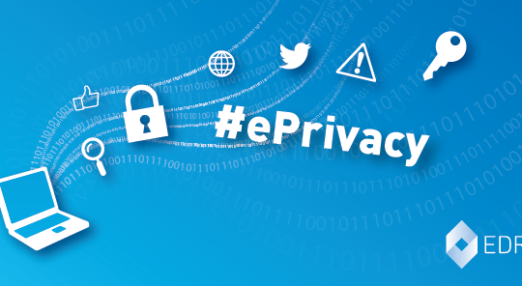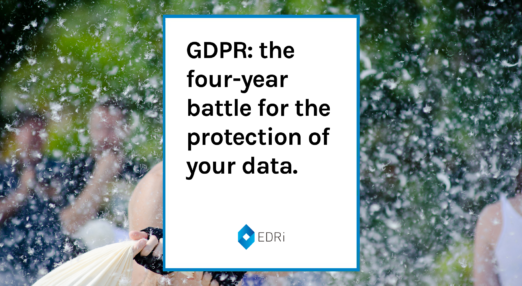data protection
Filter by...
-

Digital rights as a security objective: Fighting disinformation
Violations of human rights online, most notably the right to data protection, can pose a real threat to electoral security and societal polarisation.
Read more
-

Serbian Data Protection Commissioner: NGOs call for transparency
Today, on 4 December, eight digital rights organisations from across Europe sent a letter to the National Assembly of Serbia, asking for a transparent process of the selection of the country’s new Data Protection Commissioner.
Read more
-

CJEU introduces new criteria for law enforcement to access data
On 2 October 2018, the Court of Justice of the European Union (CJEU) delivered a new ruling in the “Ministerio Fiscal” case on access to data retained by electronic communications service providers under the scope the ePrivacy Directive.
Read more
-

ePrivacy: Public benefit or private surveillance?
92 weeks after the proposal was published, the EU is still waiting for an ePrivacy Regulation. The Regulation is supposed to replace the current ePrivacy Directive, aligning it with the General Data Protection Regulation (GDPR).
Read more
-

Council continues limbo dance with the ePrivacy standards
It's been six-hundred-fifty-two days since the European Commission launched its proposal for an ePrivacy Regulation. The European Parliament took a strong stance towards the proposal when it adopted its position a year ago, but the Council of the European Union is still only taking baby steps towards finding its position.
Read more
-

The Facebook breach – a GDPR test-case
On 28 September, Facebook notified the Irish Data Protection Commissioner (DPC) about a massive data breach affecting more than 50 million of its users.
Read more
-

Five reasons to be concerned about the Council ePrivacy draft
The amendments improve the original proposal by strengthening confidentiality requirements for electronic communication services, and include a ban on tracking walls, legally binding signals for giving or refusing consent to online tracking, and privacy by design requirements for web browsers and apps.
Read more
-

ePrivacy for Children: What is Data Protection Culture?
The General Data Protection Regulation (GDPR) attracted widespread attention and comment in recent weeks when it came into force on 25 May 2018. Having taken several years to get from being proposed by the European Commission to entering into force, the GDPR has been designed as a concerted, holistic and unifying effort to regulate personal […]
Read more
-

Your ePrivacy is nobody else’s business
The right to privacy is a fundamental right for every individual, enshrined in international human rights treaties. This right is being particularly threatened by political and economic interests, which are having a deep impact on freedom of expression, democratic participation and personal security.
Read more
-

The four year battle for the protection of your data
We were up against the combined resources of the largest multinational corporations and data-hungry governments, but we also had two things in our favor: the rapporteur Jan Philipp Albrecht and his team were adamant about safeguarding civil rights, and in 2013 the Snowden-revelations made politicians more keen on doing the same. Against all odds, we prevailed!
Read more
-

New Dutch law for intelligence services challenged in court
On 21 March 2018, the Dutch voted in an advisory referendum on the new Intelligence and Security Services Act. A majority of Dutch citizens voted against the law in its current form – a clear signal that the law is in urgent need of reconsideration. EDRi member Bits of Freedom has been fighting against important parts of this law since the first draft in 2015, so the outcome of the referendum comes as a positive news.
Read more
-

Facebook: Unanswered questions
On 9 April 2018, EDRi received an invitation from Facebook to attend a meeting to the loss of trust in Facebook, following the Cambridge Analytica scandal.
Read more
